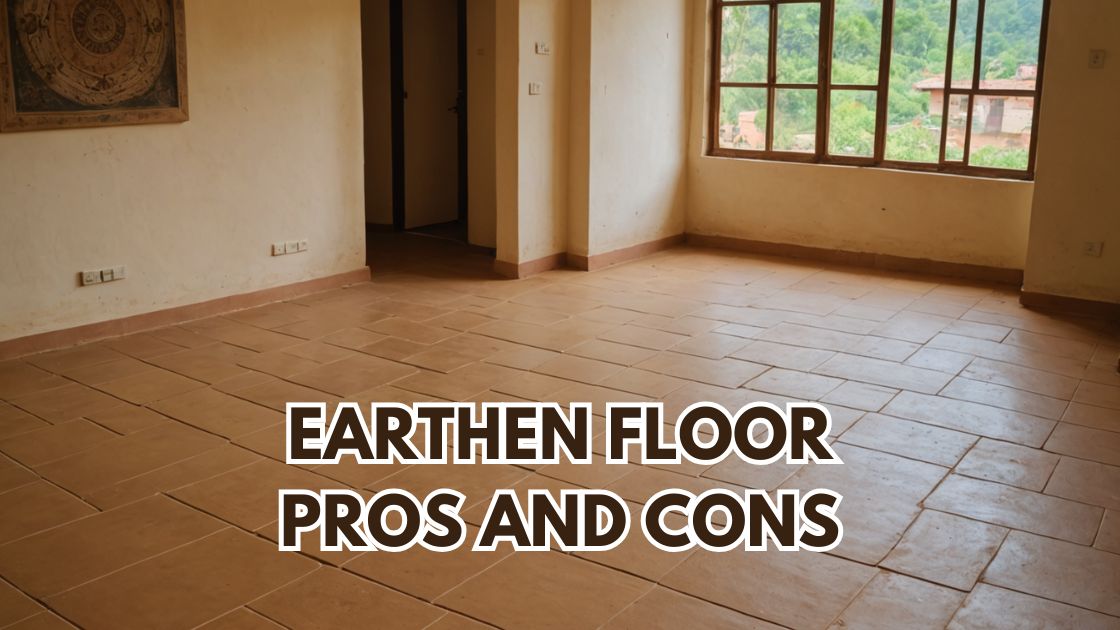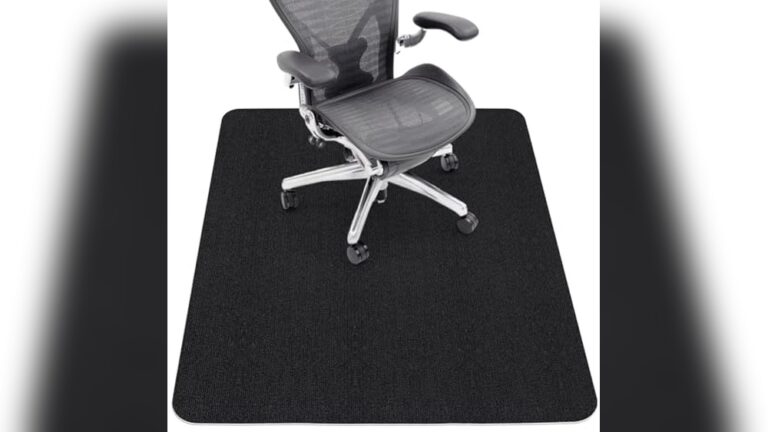Earthen Floor Pros And Cons Comprehensive Guide
When considering flooring options for your home, one unique and sustainable choice is the earthen floor. Known for its natural appeal and eco-friendly qualities, earthen floors are gaining popularity, especially among homeowners seeking a connection to nature and sustainable living. However, like any flooring material, it’s essential to weigh the earthen floor pros and cons before making a decision. In this article, we’ll explore the advantages and drawbacks of earthen floors to help you determine if they’re the right choice for your space.
What is an Earthen Floor?
| # | Preview | Product | |
|---|---|---|---|
| 1 |

|
Earthen Floors: A Modern Approach to an Ancient Practice | Check Price on Amazon |
Before diving into the earthen floor pros and cons, it’s important to understand what earthen floors are. These floors are made primarily from natural materials like clay, sand, straw, and sometimes lime or cement.
Often referred to as “dirt floors,” they can be finished in various ways, such as smoothing the surface or adding pigments for color. Traditionally used in rural areas, these floors are now being embraced for their sustainability and charm in modern homes.
Earthen Floor Pros And Cons:
| Pros | Cons |
|---|---|
| Sustainability: Made from natural, locally sourced materials, reducing environmental impact. | Durability: Can be less durable than other flooring options, prone to cracks and wear over time. |
| Cost-Effective: Lower initial cost compared to other flooring types due to inexpensive raw materials and labor. | Maintenance Requirements: Needs regular upkeep, including sealing and refreshing to prevent erosion and damage. |
| Aesthetic Appeal: Offers a warm, rustic, and customizable look, enhancing the aesthetic of the space. | Vulnerability to Water Damage: Can absorb moisture, leading to erosion, mold, or surface deterioration without proper sealing. |
| Health Benefits: Non-toxic and free from harmful chemicals or VOCs, improving indoor air quality. | Installation Challenges: Requires careful installation, potentially needing a professional, which can increase costs. |
| Thermal Insulation & Moisture Regulation: Helps regulate indoor temperature and humidity, reducing energy usage. | Not Suitable for All Environments: Not ideal for areas with extreme weather conditions or high moisture, such as bathrooms. |
More Pros and Cons:
Beveled Edge LVP Flooring Pros And Cons
Acacia Flooring Pros And Cons: A Comprehensive Guide
Quartz Flooring Pros and Cons: A Comprehensive Guide
Pros and Cons of Wood Flooring: A Comprehensive Guide
Pros and Cons of Tile Flooring: A Comprehensive Guide
The Pros of Earthen Floors:
1. Sustainability
One of the most significant advantages of earthen floors is their sustainability. The materials used are locally sourced, reducing the environmental impact associated with transportation. Additionally, the production of earthen floors requires less energy than traditional flooring options like tiles, hardwood, or carpet. By choosing earthen floors, you’re opting for a renewable and eco-friendly option that contributes to a lower carbon footprint.
2. Cost-Effective
When compared to other flooring choices, earthen floors can be highly cost-effective. The raw materials needed to create an earthen floor are relatively inexpensive, especially when they are sourced locally. Labor costs are also lower, as the process of installing an earthen floor is less complicated than more modern flooring techniques. This makes earthen floors an attractive option for budget-conscious homeowners.
3. Aesthetic Appeal
Earthen floors have a warm, earthy aesthetic that can transform a space into a natural, rustic haven. With the ability to customize colors and textures, you can create a unique floor that matches your design preferences. Whether you’re aiming for a traditional or modern look, an earthen floor can add a distinct character and charm that many other flooring materials lack.
4. Health Benefits
Another appealing aspect of earthen floors is their potential health benefits. Made from non-toxic, natural materials, these floors don’t emit harmful chemicals or volatile organic compounds (VOCs) often found in synthetic flooring options. This can help improve indoor air quality, particularly in homes with sensitive individuals, such as those with asthma or allergies.
5. Thermal Insulation and Moisture Regulation
Earthen floors naturally help regulate the temperature and humidity levels in a room. They absorb and release moisture, which can be particularly beneficial in areas with fluctuating climates. During hot weather, the earth absorbs heat, keeping your home cooler, while in colder months, it releases warmth, helping maintain a comfortable indoor temperature. This natural thermal regulation can also reduce your dependence on heating and cooling systems, contributing to energy savings.
The Cons of Earthen Floors:
1. Durability Concerns
One of the major earthen floor pros and cons is the durability. While earthen floors can be long-lasting when properly maintained, they are not as durable as other flooring options like hardwood or tiles. Heavy traffic, moisture, and wear over time can lead to cracks or surface damage. While sealants and regular maintenance can prolong their lifespan, earthen floors may not be ideal for high-traffic areas in a busy household.
2. Maintenance Requirements
While earthen floors are relatively easy to install, they require consistent maintenance to keep them in good condition. Depending on the type of earthen floor, it may need re-sealing or refreshing periodically. Areas exposed to moisture, such as kitchens or bathrooms, might need extra attention to prevent erosion or mold growth. If you’re not willing to commit to regular upkeep, earthen floors might not be the best option for you.
3. Vulnerability to Water Damage
Water damage is a significant concern with earthen floors. If not properly sealed or maintained, earthen floors can absorb moisture, leading to potential issues such as mold growth or surface deterioration. This is especially problematic in areas with high humidity or in spaces like bathrooms or kitchens, where water is frequently used. In these environments, earthen floors may need extra layers of protection, such as moisture barriers, to reduce the risk of damage.
4. Installation Challenges
Although earthen floors are cost-effective and sustainable, they can be challenging to install. The process requires careful preparation of the subfloor and a proper mix of materials. It’s best to hire a professional with experience in installing earthen floors, which could increase the overall cost. DIY enthusiasts may find the process tricky and time-consuming, especially when it comes to achieving the desired texture and smoothness.
5. Not Suitable for All Environments
Earthen floors are not always suitable for all climates or environments. In areas with extreme weather conditions, such as areas with heavy rain or very cold temperatures, earthen floors might not hold up as well. Similarly, they are not the best choice for modern homes that require high-performance materials. If you live in a region with fluctuating temperatures or experience a lot of moisture, you may need to reconsider whether earthen floors will work for your home.
Final Words
In conclusion, the earthen floor pros and cons present a mix of benefits and challenges. On the positive side, earthen floors are eco-friendly, cost-effective, and visually appealing, providing natural insulation and improved air quality. However, they do require significant maintenance and can be vulnerable to water damage and wear in high-traffic areas.
Ultimately, the decision to choose earthen floors depends on your specific needs, home environment, and willingness to invest in upkeep. If you appreciate natural materials and are prepared to maintain the floor properly, earthen floors could be an excellent addition to your home, creating a warm and sustainable atmosphere.





